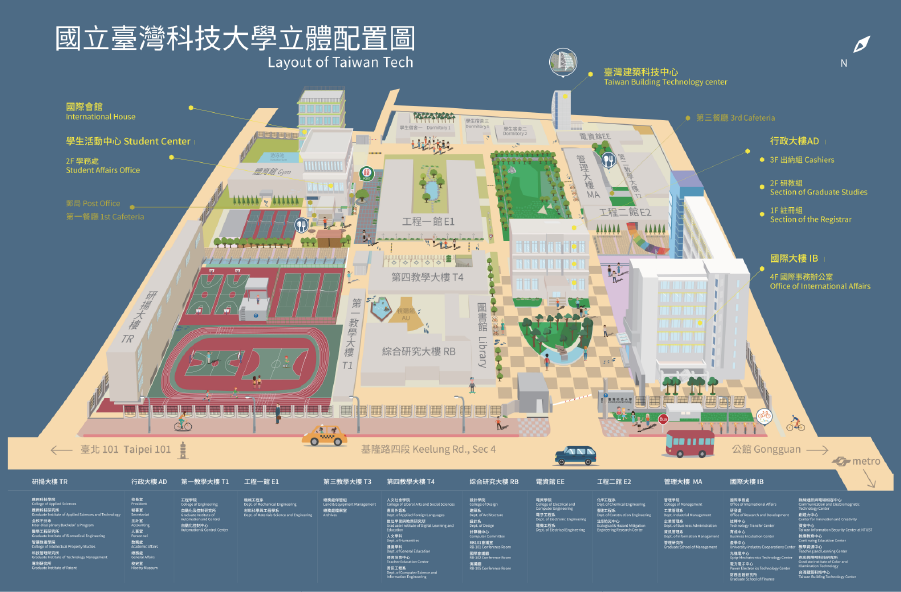Useful Links_Outline of Lectures_P2
|
11. |
Metaheuristics (3 credits) |
|
|
Introduction of optimization, classical optimization, the principles, algorithms, and real world applications of metaheuristic algorithms including projection based methods such as simulated annealing, tabu search, variable neighborhood search, and population based methods such as particle swarm optimization, differential evolution, ant colony optimization, genetic algorithm, cross entropy. |
|
12. |
Information Technology and Management (3 credits) |
|
|
Introduce various components in information technology and how they can be applied in business initiatives. Using case studies, this course involves the analysis, synthesis, application and evaluation of advanced concepts related to information technology (IT) and management. Some of the primary course objectives include: (a) Investigate the overall information needs of an organization and the technologies of information systems in providing them. (b) Examine alternative ways to manage information systems for matching the information systems function to the structure and behavior of the organization. (c) Explore and debate critical issues related to managing and administering the information systems (IS) function. |
|
13. |
System Simulation (3 credits) |
|
|
This course introduces the simulation models and simulation studies. Besides, we will discuss statistical aspects including input data analysis, random variate generation, output data analysis and variation reduction techniques. |
|
14. |
Process Capability Analysis (3 credits) |
|
|
This course uses journal paper to assist you in learning and demonstrating your understanding of the process capability analysis methods. A.Introduction of statistical process control B.The relationship between quality and variation C.The theory of control chart D.The application of control chart E. Process capability index - single variable F. Process capability index – multiple variables G. The application of PCA in manufacturing industry H. PCA in project management I. The implementation of SPC J. Software in SPC |
|
15. |
Project Management (3 credits) |
|
|
Projects that could have been successful often fail because of the wrong assumption that project management is only breaking projects into works, assigning them to individuals, and then waiting for the works to be done on time, within budget, and with expected specifications. It is generally difficult to successfully manage a project in terms of time, cost, and performance simultaneously. Therefore, it is important to understand how to manage projects. This course introduces the concepts, techniques, theories, and applications of project management. Both organizational behavior issues and quantitative methods are included. |
|
16. |
Multivariate Analysis (3 credits) |
|
|
This course focuses on discussing how to use the statistical methods to analyze the multi-normal data. These methods include Wishart distribution, Hotelling T-distribution, Logistic regression, Principle component, Factor analysis, and so on. The following materials are contained in this class. A. Theories of vectors, matrices and so on B. Introduction of multi-normal distribution C. Wishart distribution and Hotelling T-distribution D. Testing of the mean vector E. Multiple regression model F. Logistic regression model G. Principle component H. Factor analysis I. Cluster analysis |
|
17. |
Management Decision Making (3 credits) |
|
|
A major concern in management is to understand and to improve decision making. The course will cover topics for Management from various viewpoints. Both objective and subjective point of views can be applied in many management areas. Issues, such as Statistics-based approaches and psychological strategies, will be covered by stories from different companies. We will go through these issues from Harvard Business School and Richard Ivey School of Business cases studies. |
|
18. |
Human Decision Models and Applications (3 credits) |
|
|
To develop an understanding of uncertainty, cognitive processing models, and naturalistic decision making’s environment; learn the appropriate use of probabilistic risk assessment and a set of axioms, and the application of decision rules, both in qualitative and quantitative terms, to establish a procedure for structuring the human decision making process to make informed important decisions concerning projects that include important elements of technological or financial risk. |
|
19. |
Production Management System |
|
|
Production management system (PMS) conventionally focused on manufacturing and the development of physical products. In this course, we attempt to expand it to supply chains and service industries. This course enables students to develop fundamental skills and concepts needed to ensure the ongoing contribution of a firm's operations to its competitive position. It helps them to understand the complex processes underlying the development and manufacture of products as well as the creation and delivery of services. |
|
20. |
Experimental Design |
|
|
This is a basic course in designing experiments and analyzing the resulting data. The students will learn how to plan, conduct and analyze experiments effectively and efficiently in this course. Several types of experiments that are frequently conducted in industrial settings will also be included. In this course, the topics to be covered include A. Introduction to DOE B. Basic Statistical Methods C. Analysis of Variance D. Experiments with Blocking Factors E. Factorial Experiments F. Two-level Factorial Designs (i.e. 2k designs) G. Blocking and Confounding Systems for Two-level factorials H. Two-level Fractional Factorial Designs (i.e. 2k-p designs) I. Random Effects Models J. Nested and Spilt-Plot Designs |
